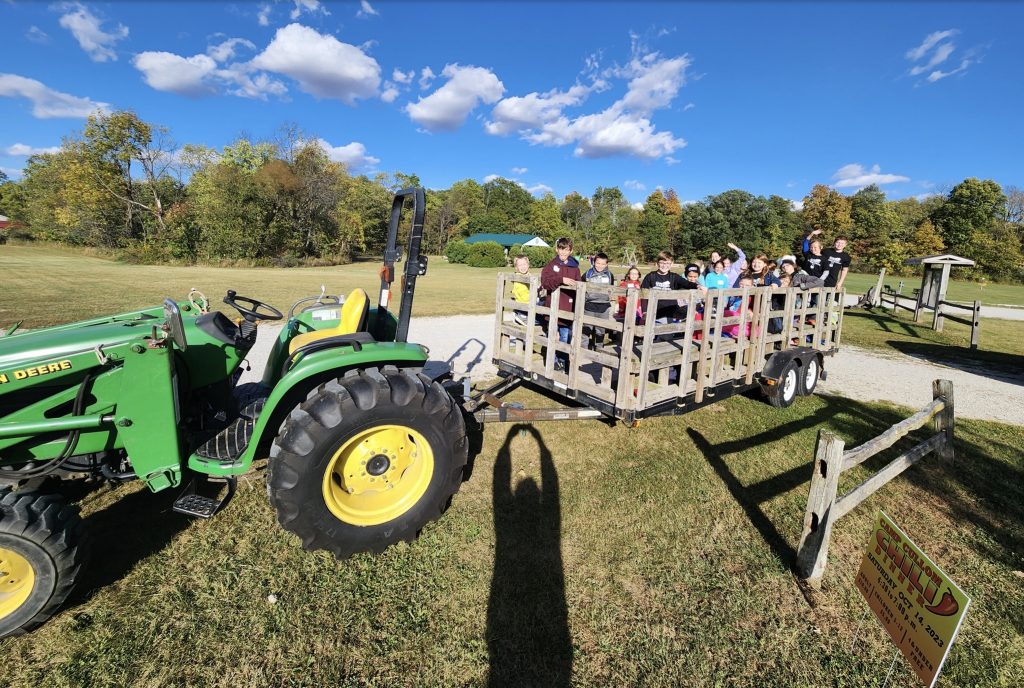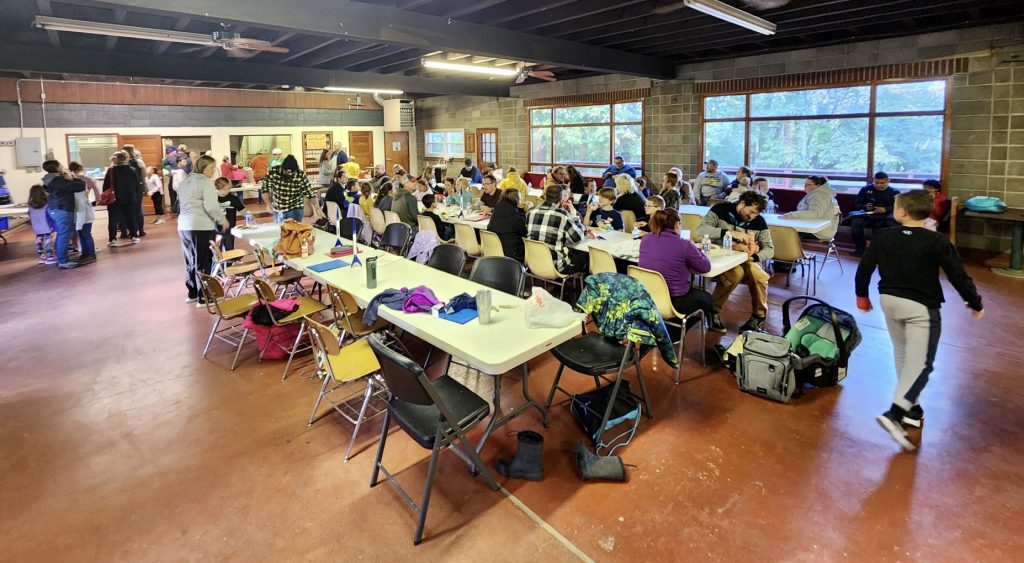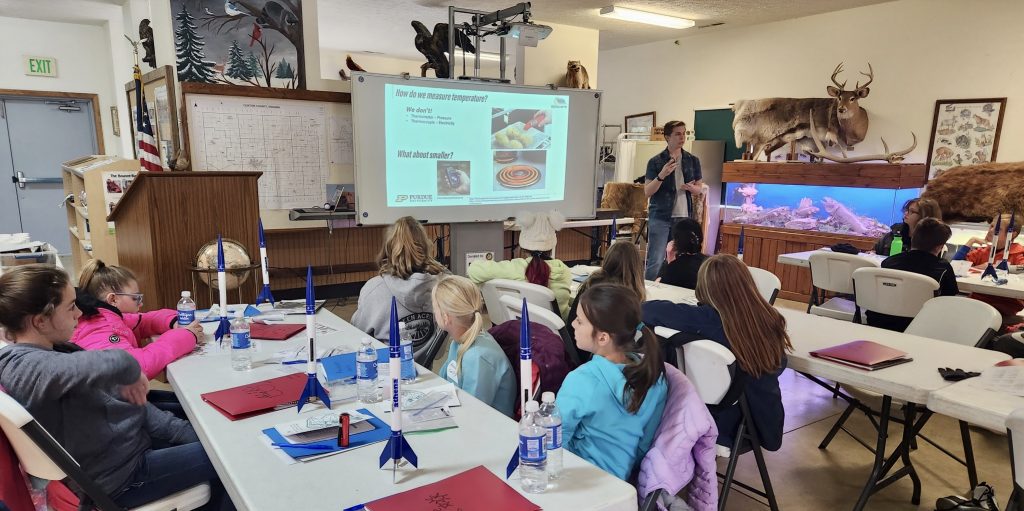This weekend Camp Cullom became a Science Laboratory for 26 Clinton County 5th graders.
Clinton County fifth grade teachers were invited to nominate about 2 students per classroom to participate in the annual Camp Cullom Academy of Science at the 90 acre Camp owned by the Children of Clinton County.
Teacher-Selected students from Green Meadows, Suncrest, Rossville, Clinton Central and Clinton Prairie 5th grade classes participated in the Friday evening and Saturday event.
The “Science Weekend” started with a lecture from Andy Schilling on the size of the Milky Way galaxy compared to the size of the solar system. Students, parents and siblings then toured the Astronomical Observatory and saw the entire roof of one building roll off, exposing the telescope to the sky. Meteorites and a moon rock chip from the Observatory collection were shown and explained to the students.
The Science Academy kicked off Saturday morning at 8:30 with a review of the scientific method and how it is used to search for answers to our science questions. Some students played “target practice” with a Laser and inspected a large 3 dimensional map of the Smoky Mountains area while waiting for registration to finish.
Scientific Method:
- Observation
- Propose a question
- Research the topic
- Hypothesis “I think this is what is happening”
- Experiment
- Analysis of Data
- Conclusion
Adam Shanks with Purdue University then gave the students a demonstration on UAV’s or Unmanned Aerial Vehicles or Drones. Adam showed the students a large screen projecting the image from the flying drone. One large sprayer drone weighed 54 pounds. All drones Shanks flew for the students required a license, knowledge and compliance of FAA airspace regulations.
Students then split off into two groups, one to go to the woodlands for study with Forester Jeff Swackhamer. The other group went down to the Spring Creek bank and studied aquatic life with Ruby, Mercury and Emma from Purdue University school of Environmental Science.
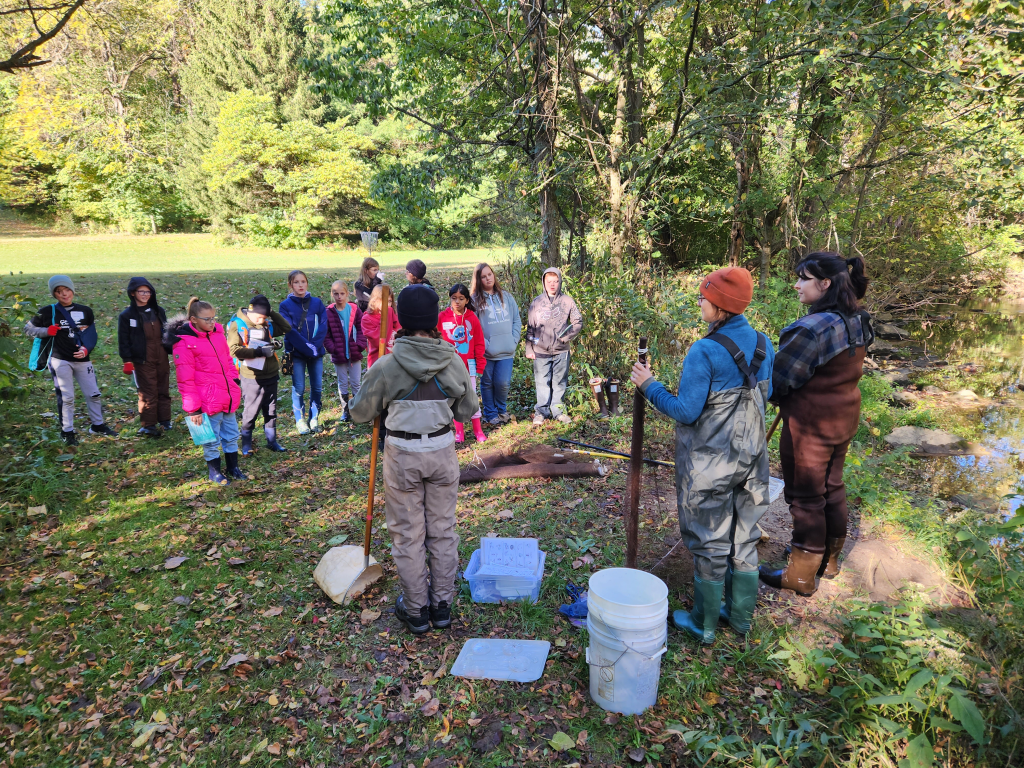
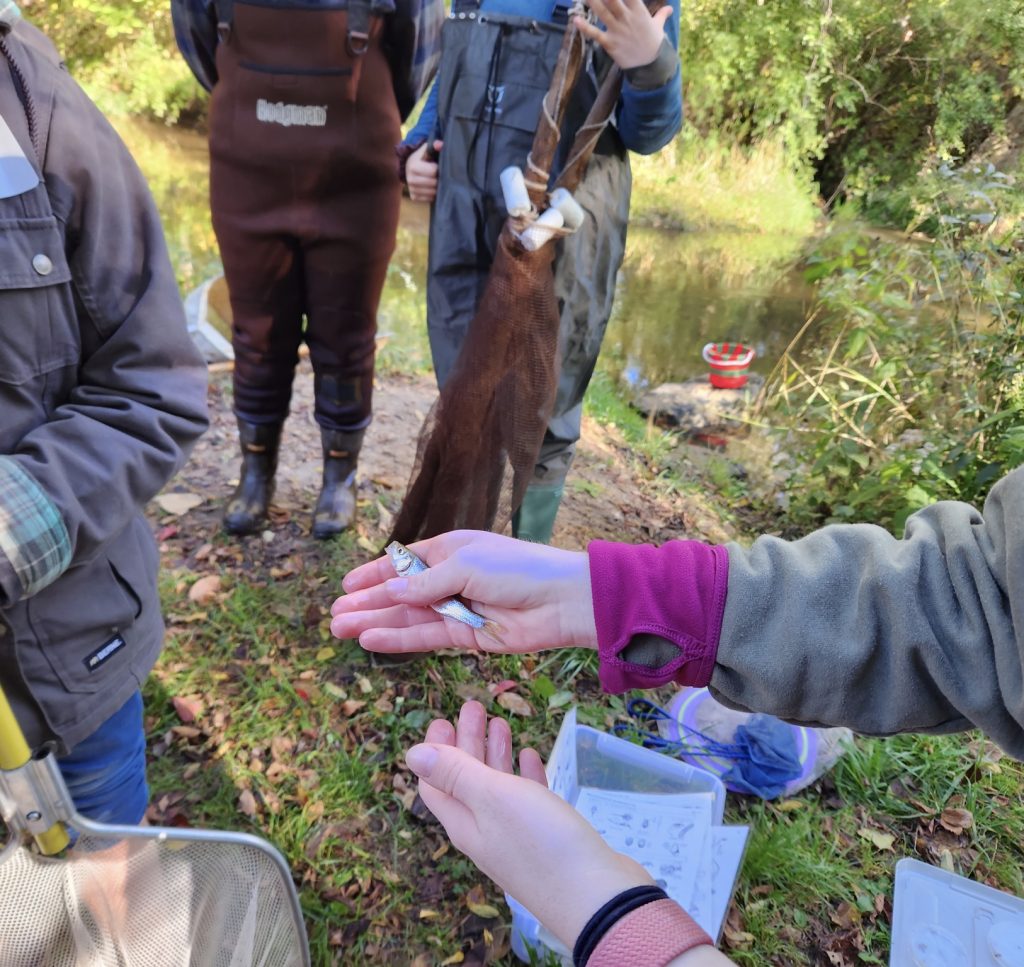
After a Pizza Lunch, it was “Rocket Time.”. Each student received their own Rocket, finished building it and launched it near the Nature Center under the direction of George Wyncott and Andy Schilling. Wyncott gave a lecture on how rockets fly and why they are able to travel in space when other vehicles, such as jets, are unable to make that trip in space.
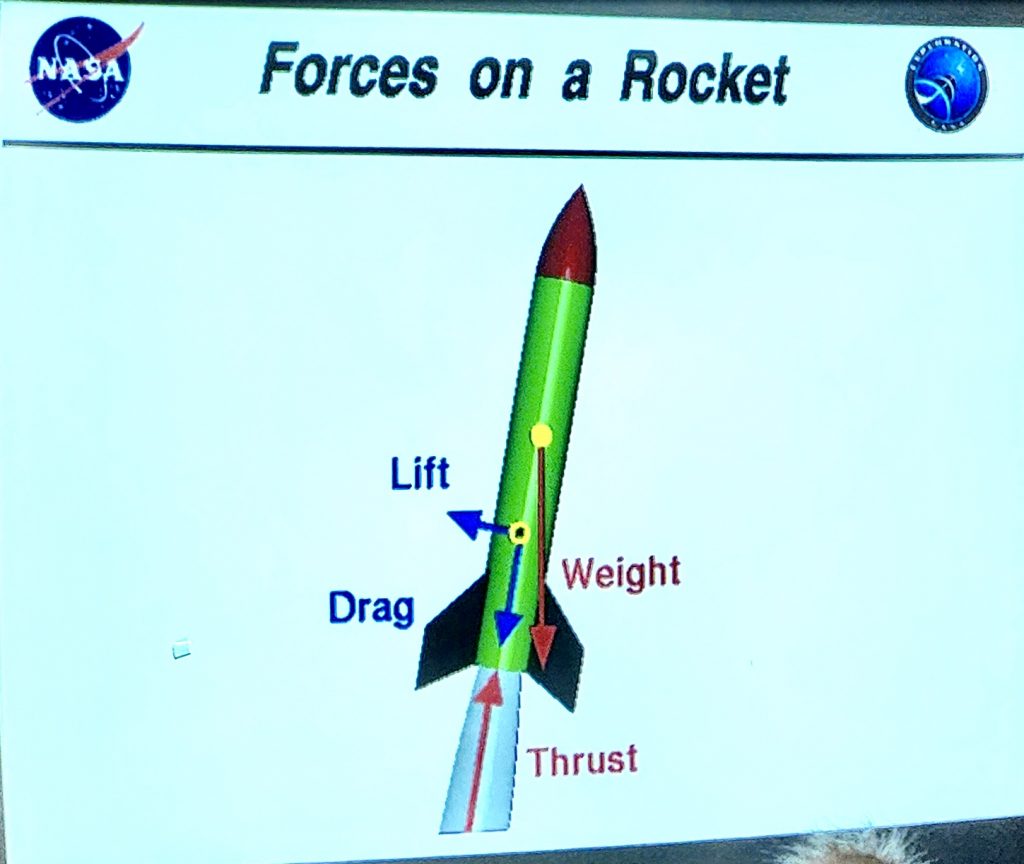
Walter Smith, graduate student at Purdue University, explored the way temperatures are measured and the explained how this is useful in the design of digital devises such as phones and laptops.
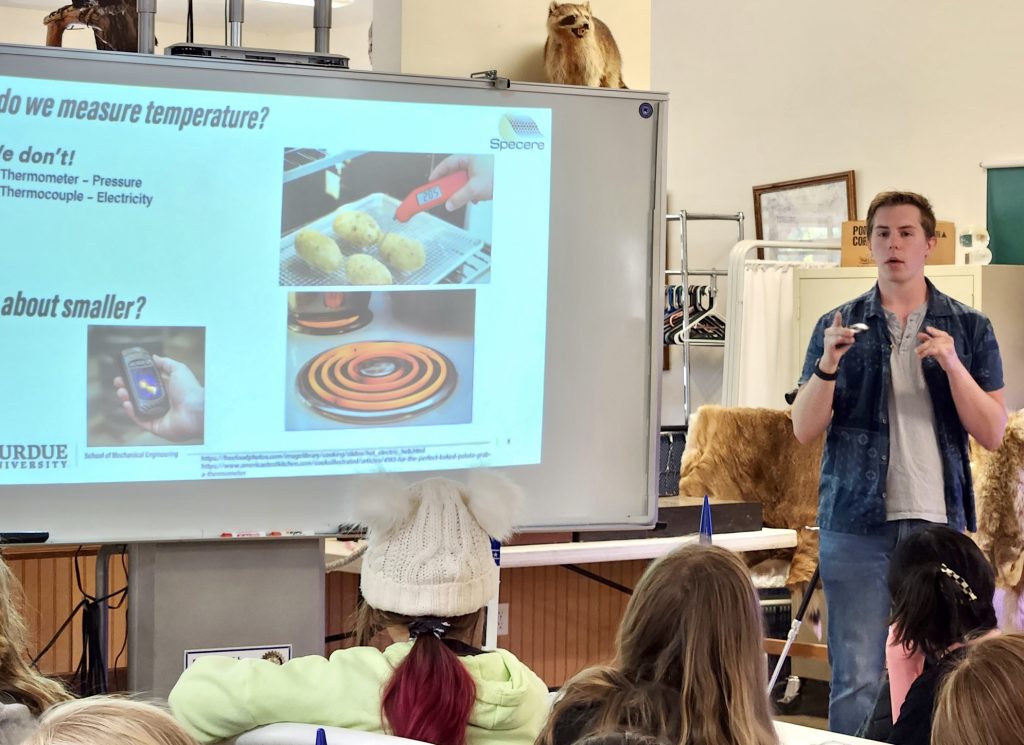
NASA project manager Greg McCauley giving a talk “Flight of the Dragonfly.” McCauley explained the mission to Saturn’s largest moon Titan and how the AI driven drone aircraft will explore this moon known to have water possibly capable of supporting life. One quote used by McCauley during his talk is “Tenacity is a Super Power”. Tenacity is sometimes needed by scientists who face discouraging challenges in their quest for knowledge. McCauley worked for NASA and helped plan Apollo 15, 16 and 17 missions. His team laid out a detailed map of the lunar landing area for the missions. McCauley had a top secret clearance from NASA while he worked on the Apollo missions.
McCauley also gave a “Sneak Peak” at the Grand Universe project which may break ground on April 8, 2024 on eclipse day. Grand Universe will be located next to Grand Park in the Noblesville area and will enrich STEM learning for the midwest.
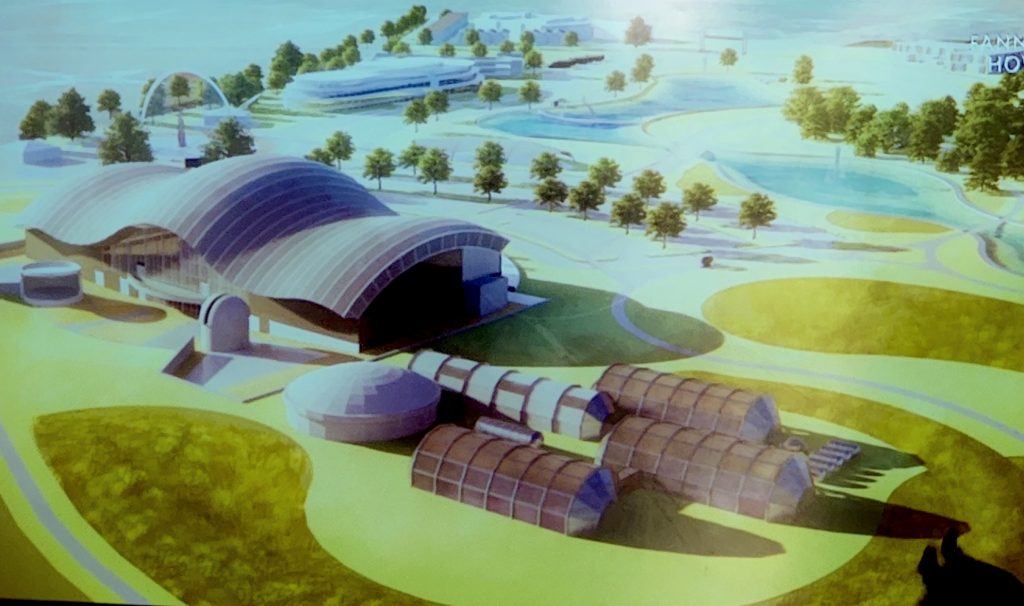
Before Hoppy Bray gave the students a hay wagon tour of the Camp, Russ Kaspar gave a brief lesson on “Designing your Own Experiment”. Kaspar won an all expense paid trip to the International Science Fair in New Orleans when he was a student at Clinton Prairie for his three year project “Experiments in Astro-Photography”.
Camp Cullom and Academy of Science is funded by United Way for Clinton County. Academy of Science this year was presented by the Camp Cullom Board and co-ordinated by Susan Kaspar.
